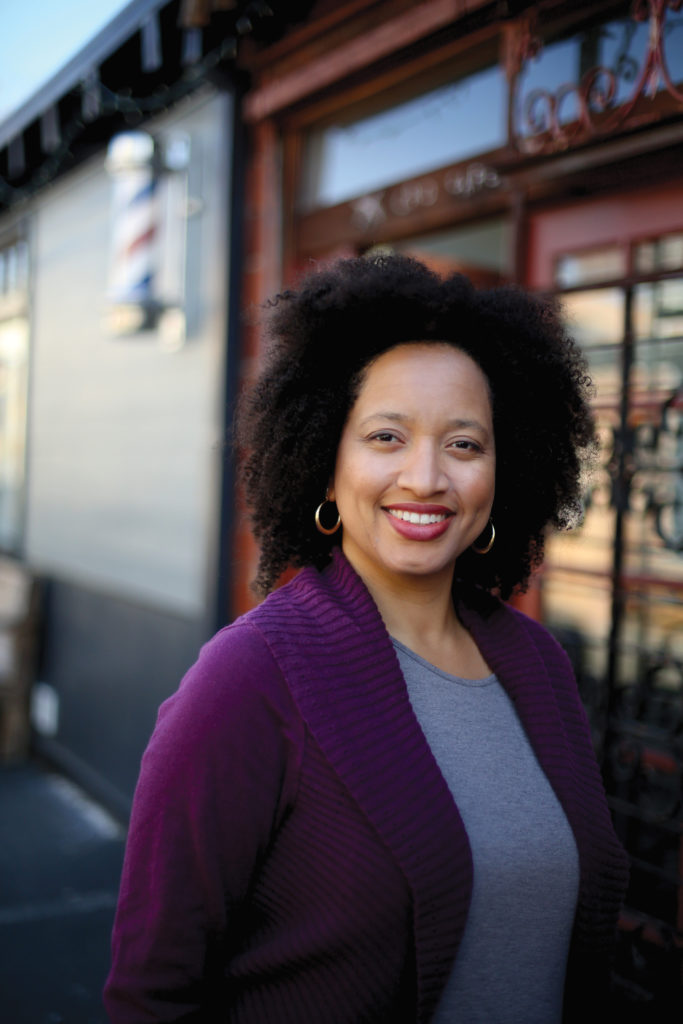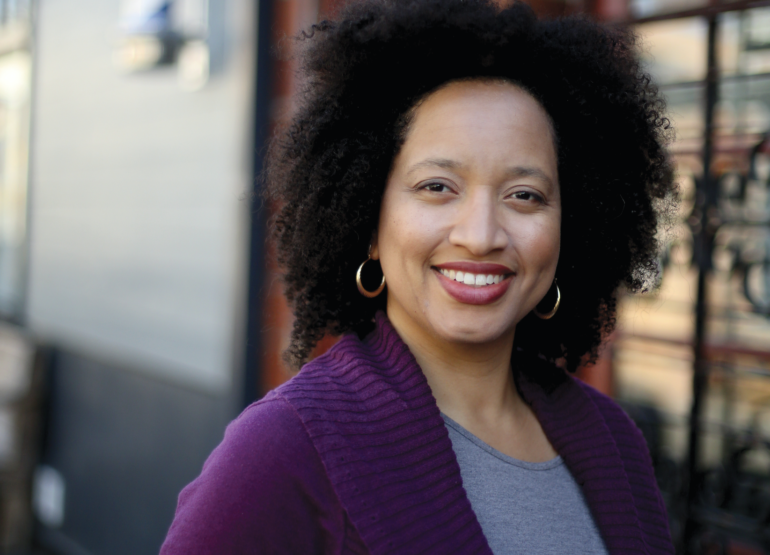
By Shannon Wianecki
On Halloween of her senior year at Punahou, Allison Briscoe Smith ’94 found herself lost in Manoa. It was her first day volunteering at a Salvation Army-run domestic violence shelter. When she finally found the address, she was surprised by a 5-year-old boy who opened the door dressed as a lion. “It’s OK,” he said, taking her by the hand. “You’ll be all right.”
Briscoe-Smith had expected to help traumatized kids; instead she discovered how resilient and open they were. “I was blown away by their capacity to talk about feelings,” she says. “Their language far outpaced my peers. That changed me. It put me on a trajectory.”
Today Briscoe-Smith is a clinical psychologist, teacher and author specializing in trauma – particularly racialized trauma. She serves as the director of Diversity, Equity and Inclusion at the Wright Institute in Berkeley, California, and has recently published a book, “Generation Mixed Goes to School: Radically Listening to Multiracial Kids.”
She will be in residency at Punahou this spring, working virtually with students, parents, faculty, staff and members of the School’s Diversity, Equity and Inclusion group. Her sessions with Punahou include a Team Up event for families; a “Ready to Listen” session for faculty and staff; a meeting with the School’s Black Student Union; and discussions with Academy students about racial identities.
“Few initiatives are as important to me as an educator,” President Mike Latham ’86 said about the School’s Diversity, Equity and Inclusion initiative. “Listening to and learning from our entire community will be central to this work.”
Briscoe-Smith, who was recently featured in a School podcast, “Race and Black Experiences at Punahou,” readily agreed to assist her alma mater in removing identity-based barriers. “Race is a social construct – it’s moving, it’s a dynamic,” she says. “We can talk about it in a different way – a way that moves towards social justice.”
Along with pivotal experiences at the Salvation Army shelter, Briscoe-Smith said her career aspirations crystalized after she took AP Psychology at Punahou, taught by a clinical psychologist, and experienced the class “coming alive.”
She went on to study social and developmental psychology at Harvard, focusing on children’s perceptions of race. Her curiosity was fueled by her personal experience growing up in Hawai‘i, where she was often the sole Black student in class. While in Boston for her freshmen year of college, Briscoe- Smith encountered a very different environment. Strangers assumed she was on the wrong train based on her skin color. “It was jarring and shocking,” she says.
But for the first time, she could connect with other Black students. In her class of 1,500 students, 100 were Black. “There were only 100 of us, but for me that was 100 times more than any other group I’d been in,” she says.
She joined a gospel choir and took her first African American studies class from acclaimed philosopher and author Cornel West. She began researching how stereotypes influence children’s development and memories. After graduating with a psychology degree, she pursued a doctorate at the University
of California, Berkeley. Her dissertation examined how parents talk to their kids about race and gender.
Settling in the Bay Area, she worked with people in crisis – children in foster care, and victims of domestic violence, sex abuse and racial trauma. She taught child psychology at Palo Alto University, assisted children entering foster care in Alameda County, and managed the Center for the Vulnerable Child at UCSF Benioff Children’s Hospital Oakland. “The seed for this work came from Punahou,” she says. “Getting a chance to be of service, listening to kids about their trauma and more importantly their resilience, was a foundation.”
She’s been at her current position at Wright Institute for six years. Her job suddenly grew in scope in response to the Black Lives Matter movement. Right after the May 2020 murder of George Floyd, her workload quintupled. She’s since been fielding numerous calls for training and support. People want to address racial inequities. “We can do it,” she says. “We don’t have to live in a world where race is traumatizing.”
For Briscoe-Smith, kids are key to this conversation. Her talks and training center around how to talk to kids about race, but perhaps even more important, is how we listen to our children. “I’m optimistic about what kids are able to do and how they’re able to speak and intervene,” she says. “As adults we’re
obligated to provide support for them. We can do that by listening and engaging with them.”

